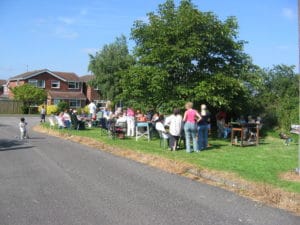Support us from £3/month
We deal with almost 1000 cases a year assisting communities, groups and individuals in protecting their local spaces and paths in all parts of England and Wales. Can you help us by joining as a member?
Green spaces have been dealt a savage blow. The Court of Appeal has ruled that even when land is vaguely identified in a plan for potential development, it cannot be registered as a town or village green (TVG).
We are deeply concerned that as a result of the Appeal Court judgment people’s ability to record their rights to use land have been severely restricted. Land can be registered as a TVG if local people have enjoyed 20 years use for informal recreation, without permission or challenge. Once registered, the land is protected from development.
The Appeal Court, endorsing a judgment in the High Court of July 2018, ruled that key policies in an adopted Core Strategy identified land for potential development, meaning that a ‘trigger event’ had occurred, precluding the registration of the land as TVG.
In 2016 Richard Gosnell applied to Wiltshire Council to register 380 square metres of amenity space adjacent to Vowley View and Highfold in Royal.

Local people enjoy a barbeque on Vowley View green space in 2005
Wootton Bassett (RWB) and the council agreed to register it in December 2017.
The landowner, Cooper Estates, sought judicial review of the registration on the basis that the land had been identified for ‘potential development’ by policies in Wiltshire Council’s core strategy and therefore a trigger event had occurred, preventing registration. The High Court upheld Cooper’s view, and Wiltshire Council applied to the Court of Appeal because it believed that there had been no trigger event and that the TVG application was valid.
Since the Growth and Infrastructure Act 2013 (GIA) introduced trigger events where development was proposed, it has been more difficult for local people to protect land that they have used for decades. One of the trigger events is land identified for ‘potential development’ in a development plan. RWB was included in the Wiltshire core strategy as a market town with development potential. The Court of Appeal said that the registration of the land ‘would frustrate the broad objectives of the plan’—even though the land itself had not been identified in the plan as a development site.
The Court of Appeal judgment means that land situated within a ‘settlement boundary’ cannot be registered and will be lost for use by future generations.
Says our case officer Nicola Hodgson: ‘the wide interpretation of “potential development” in the context of the local plan will make it very difficult for local people to protect their rights and register land as a TVG. Many people find the local plan process impenetrable and do not realise early enough in the process that land may be subject to development proposals.
‘Lord Justice Lewison mentioned that land could instead be protected as a local green space (LGS). However, the opportunities for applying for land to be so designated are few because an application can only be made where a local plan is being reviewed or when a neighbourhood plan is being prepared. The designation itself does not give the same permanent protection as registration as a TVG, and it does not provide rights of access for recreation.
‘This is a real blow to communities and we urge them to identify now land they believe to be eligible for registration before it becomes defined as land for potential development,’ Nicola concludes.
Adds Richard Gosnell, who applied to register the land as a TVG in 2017: ‘I am disappointed at the appeal decision, particularly as it may allow the landowner to destroy those aspects of the land which make it an attractive amenity. It has been used and enjoyed by the public since 1969 and has been mowed by the council’s mowing team so we presumed it belonged to the council.
‘Sadly, the land’s only protection now is if a benign landowner acquires the land or for Wiltshire Council to continue to refuse any future applications to build houses on it (there have been six applications over 17 years). Our application for a TVG was about use of the land as an amenity rather than trying to thwart development. Local residents have enjoyed the natural beauty of the land, its birds, flowers and bushes, for decades,’ says Richard.
The judgment in Wiltshire Council and Cooper Estates Strategic Land Ltd can be found here.
Our general secretary talks about the campaign on the BBC You and Yours programme from June 7th around 30 minutes into the recording.
